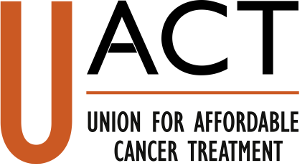UACT Letter to NIH Director Regarding CAR T technology
On August 31, 2017, UACT sent a letter to Francis Collins, the Director of the National Institutes of Health (NIH), regarding the emerging chimeric antigen receptor T-cell (CAR T) technologies that are currently being developed across a number of pharmaceutical companies and institutions. On August 30, 2017, the Food and Drug Administration (FDA) made the first approval of a CAR T treatment, a leukemia treatment by Novartis for children and young adults. Novartis announced it would charge $475,000 for the treatment. In the UACT letter to Dr. Collins, we ask the NIH to communicate more information to public regarding the NIH role in developing, patentingRead More →
